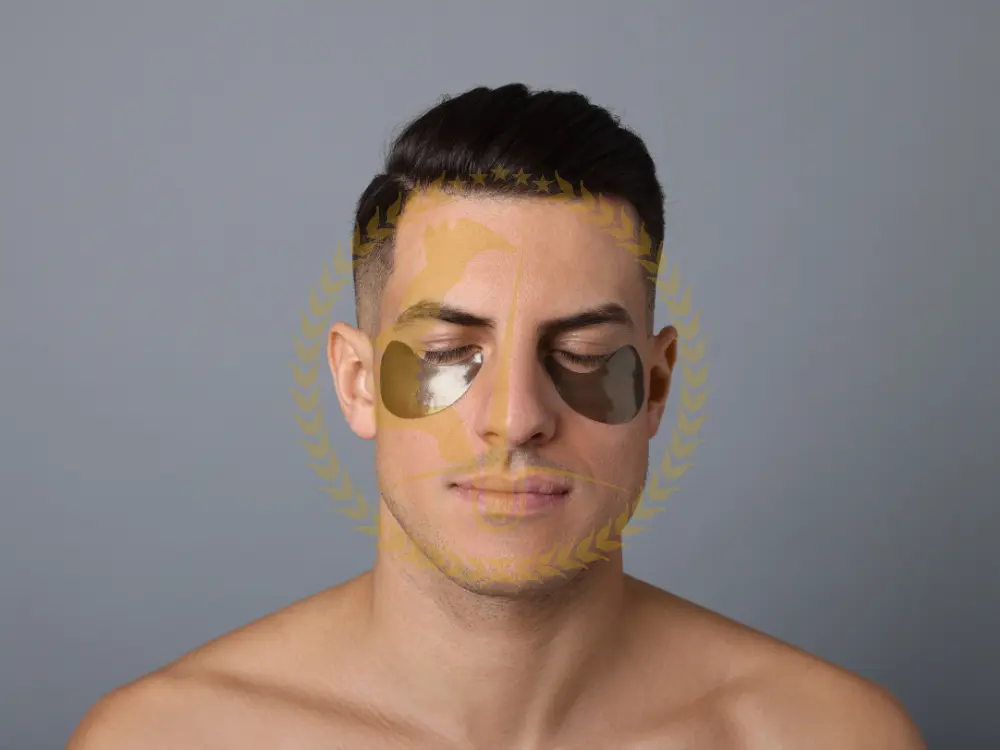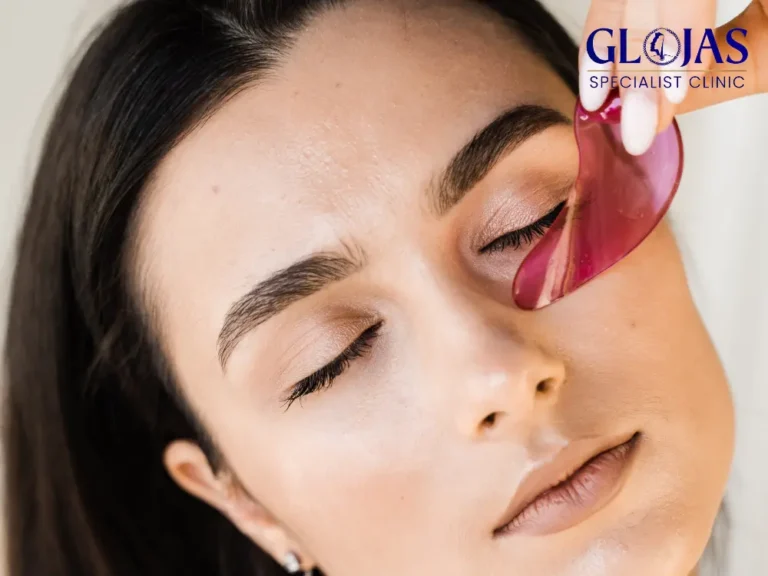How to get rid of dark patches on face, often caused by hyperpigmentation, can be a significant concern for many people. These patches may result from various factors, including sun exposure, hormonal changes, acne scars, or even certain medications. If you’ve been struggling with uneven skin tone and wondering how to get rid of dark patches on your face, you’re not alone. Fortunately, there are effective treatments available that can help you achieve a clearer, more radiant complexion.
In this article, we’ll explore several proven methods for treating dark patches, including the benefits of SOS Glutathione Supplement, and provide tips on preventing future pigmentation issues.
Understanding How to get rid of dark patches on face
Dark patches on the face are typically a result of hyperpigmentation, a condition where certain areas of the skin produce more melanin (the pigment that gives skin its color) than others. This excess melanin can create spots or patches that appear darker than the surrounding skin.
Common Causes of Dark Patches
Understanding the root causes of dark patches can help in effectively treating and preventing them. Some common causes include:
- Sun Exposure: UV rays from the sun can trigger the production of melanin, leading to dark spots or patches.
- Hormonal Changes: Pregnancy, birth control pills, and other hormonal fluctuations can cause melasma, a type of hyperpigmentation.
- Post-Inflammatory Hyperpigmentation (PIH): This occurs after an injury to the skin, such as acne or cuts, resulting in dark spots as the skin heals.
- Medications: Certain medications can cause increased pigmentation as a side effect.
- Aging: As the skin ages, it may develop age spots or liver spots due to long-term sun exposure.

How to Get Rid of Dark Patches on Face: 7 Powerful Solutions
There are several effective treatments available to help reduce the appearance of dark patches on the face. Here are seven solutions to consider:
1. Topical Treatments with Hydroquinone
Hydroquinone is a skin-lightening agent that works by inhibiting melanin production. It’s often prescribed for treating dark patches and can be highly effective when used consistently. Hydroquinone is available in various strengths, and it’s essential to use it under the guidance of a dermatologist to avoid potential side effects like skin irritation or further pigmentation.
2. Vitamin C Serums
Vitamin C is a powerful antioxidant that helps brighten the skin and reduce the appearance of dark patches by inhibiting melanin production. Regular use of a vitamin C serum can lighten existing dark spots and prevent new ones from forming. Look for serums with a stable form of vitamin C, such as ascorbic acid, for maximum effectiveness.
3. SOS Glutathione Supplement
The SOS Glutathione Supplement is gaining popularity as a powerful solution for reducing dark patches on the face. Glutathione is a potent antioxidant naturally found in the body that helps detoxify the skin and inhibit melanin production. Taking a glutathione supplement can help lighten hyperpigmentation and promote a more even skin tone from within. The SOS Glutathione Supplement is particularly noted for its high bioavailability, meaning it’s easily absorbed and utilized by the body, leading to faster and more noticeable results.
4. Chemical Peels
Chemical peels involve applying a chemical solution to the skin, which causes the top layer to peel off, revealing new, smoother skin underneath. Peels containing glycolic acid, salicylic acid, or lactic acid are commonly used to treat dark patches. These peels can vary in strength, with stronger peels offering more dramatic results but requiring longer recovery times.
5. Microdermabrasion
Microdermabrasion is a non-invasive procedure that exfoliates the skin’s surface, removing dead skin cells and promoting the growth of new, healthier skin. This treatment can be effective in reducing the appearance of dark patches and improving overall skin tone. Microdermabrasion is gentle enough for most skin types and has minimal downtime, making it a convenient option for many people.
6. Retinoids
Retinoids, derived from vitamin A, are commonly used in skincare to promote cell turnover and improve skin texture. They help fade dark patches by speeding up the shedding of pigmented skin cells and encouraging the growth of new, evenly pigmented skin. Prescription-strength retinoids, such as tretinoin, are more potent than over-the-counter retinol products and can be particularly effective for treating hyperpigmentation.
7. Laser Therapy
Laser therapy uses targeted light energy to break down excess melanin in the skin. There are different types of lasers used for treating dark patches, including fractional lasers and intense pulsed light (IPL) therapy. Laser treatments can be very effective, especially for stubborn pigmentation, but they may require multiple sessions and can be more costly than other options.

Preventing Future Dark Patches
While treating existing dark patches is important, prevention is key to maintaining an even skin tone. Here are some tips to help prevent future pigmentation issues:
1. Sun Protection
Sun exposure is one of the leading causes of dark patches on the face. To prevent further pigmentation, it’s essential to protect your skin from UV rays. Use a broad-spectrum sunscreen with an SPF of 30 or higher every day, even on cloudy days. Reapply sunscreen every two hours when outdoors, and wear protective clothing, hats, and sunglasses to shield your skin from the sun.
2. Avoid Picking at Your Skin
Picking at acne, scabs, or other skin lesions can lead to post-inflammatory hyperpigmentation. It’s important to resist the urge to pick at your skin and instead treat blemishes with appropriate skincare products.
3. Use Gentle Skincare Products
Harsh skincare products can irritate the skin and trigger inflammation, leading to dark patches. Opt for gentle, fragrance-free cleansers and moisturizers that won’t aggravate your skin.
4. Maintain a Consistent Skincare Routine
Consistency is key when it comes to preventing dark patches. Use products containing ingredients like vitamin C, niacinamide, or licorice extract to help maintain an even skin tone. Exfoliate regularly, but not excessively, to remove dead skin cells and promote a healthy, radiant complexion.

FAQs About How to Get Rid of Dark Patches on Face
1. How long does it take to see results from treatments for dark patches?
The time it takes to see results can vary depending on the treatment used and the severity of the dark patches. Topical treatments like hydroquinone and vitamin C serums may show improvement within a few weeks to a few months. More intensive treatments like chemical peels or laser therapy can produce faster results.
2. Can SOS Glutathione Supplement help with dark patches?
Yes, SOS Glutathione Supplement can help reduce dark patches on the face by inhibiting melanin production and promoting a more even skin tone. It is particularly effective when used in conjunction with other treatments and a consistent skincare routine.
3. Are there any side effects of using hydroquinone?
Hydroquinone is generally safe when used as directed by a dermatologist. However, it can cause skin irritation, redness, or further pigmentation if overused. It’s important to follow your dermatologist’s instructions and avoid prolonged use without medical supervision.
4. Is laser therapy safe for all skin types?
Laser therapy can be safe and effective for many skin types, but it’s essential to have a consultation with a dermatologist or laser specialist to determine the best type of laser for your skin. Some lasers may not be suitable for darker skin tones due to the risk of further pigmentation.
5. How often should I use vitamin C serum to treat dark patches?
Vitamin C serum can be used daily, typically in the morning before applying sunscreen. Consistent use is important for seeing results and maintaining an even skin tone.
6. Can dark patches return after treatment?
Yes, dark patches can return if the underlying cause, such as sun exposure or hormonal changes, is not addressed. Preventative measures like sun protection and a consistent skincare routine are essential to maintaining results.
Dark patches on the face can be frustrating, but with the right treatments and preventative strategies, you can achieve a clearer, more even complexion. Whether you opt for topical treatments, microdermabrasion, or supplements like SOS Glutathione, consistency and sun protection are key to long-term success in managing and preventing hyperpigmentation.
